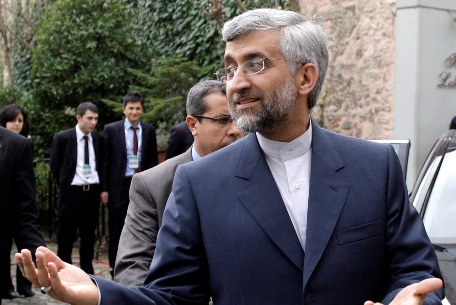Iran and Europe Should Propose New Initiatives

IRD: In an attempt to stay in harmony with Washington, Europe has now embargoed Iran’s oil. Moreover, Iran’s Central Bank’s fate in the EU will be announced momentarily. Iran is facing a new round of pressures due to its nuclear program.
The US laid the foundation of sanctions on Iran’s Central Bank and embargo of its oil, an unceasing exertion on its part that began at the dawn of the Islamic Revolution of Iran. Furthermore, The latest sanctions on Iran-- that started around a year ago-- have taken new forms and shapes.
IRD discussed Europe’s new round of sanctions against Iran and its consequences with Abdolreza Farajirad:
IRD: How are the new European sanctions on Iran different from previous ones?
AF: Europe’s policy has always been to gradually increase pressure on Iran. The meeting that took place on Monday was comprised of European foreign ministers discussing the means to take the pressure on Iran to the next stage. In essence, this new phase of sanctions on Iran is no different than those before. However, this time the Europeans have an opportunity to take advantage of the recent regional and European political lobbies that have agitated against Iran. This way the Europeans are able to increase international pressure on Iran. With respect to the sharply risen prices of gold and foreign currency in Iran, the Europeans believe that these new sanctions have been effective.
The fact that recently gold and foreign currency prices have risen dramatically in Iran has assured the Europeans that embargoing certain items will have a deep effect on the country. Hence the EU has quickly responded to this by banning any oil contracts to increase pressure.
The EU closely monitors domestic changes and developments in Iran and it will adjust its pressure on the country accordingly.
IRD: The US sanctions on Iran’s Central bank were formed in a way that it would affect any business/company that has ties with the Bank. Are the new European sanctions similar?
AF: The legislated US sanctions on Iran, which were issued by the US congress and signed by Obama, are no different than what the Europeans have done. The EU and US are fully coordinated with each other regarding Iran. Moreover, the EU is in coordination with the Far East, which has various economic and financial ties with Iran and where many of Iran’s oil customers are.
The US and Europe are more in harmony on issues regarding Iran, therefore decisions take place faster than the Far East. Yet through dialogue, pressure and politics the West compels the Far East to join them in their policies against Iran.
The 3 and 6 months provisional deadlines that have been proposed by the EU and the US respectively are to ensure that Iran’s oil is not withdrawn from the market during the cold weather seasons. A sudden drop in oil during winter months will result in higher energy prices in the West. These deadlines will allow the West and their friends to find new sellers to replace Iran’s oil, particularly southern European countries that buy Iran’s oil. Furthermore, there are oil companies that currently have investments in Iran’s oil industry. These deadlines will also allow them to withdraw any investments, lowering any risks.
IRD: Considering Ashton’s response, how do you evaluate the prospects of talks between Iran and Europe?
AF: No matter how far the extent of these sanctions go, the opponent with the upper hand will always control the outcome of the negotiations. Therefore, if Iran and the P5+1 are willing to reach agreements and build confidence, considering the current deepened division and mistrust, both parties must propose new initiatives. However, if future negotiations follow preceding trends, Iran will once again be accused of stalling to buy time and the pressure on Iran will increase even more.
Therefore new initiatives and plans from both sides must be proposed in order to build confidence between all parties. However, a long time will elapse for these new sanctions to be revoked, and for new proposals to follow through.
* Abdolreza Farajirad is a university professor and the vice-president of Iranian Association of Geopolitics.

